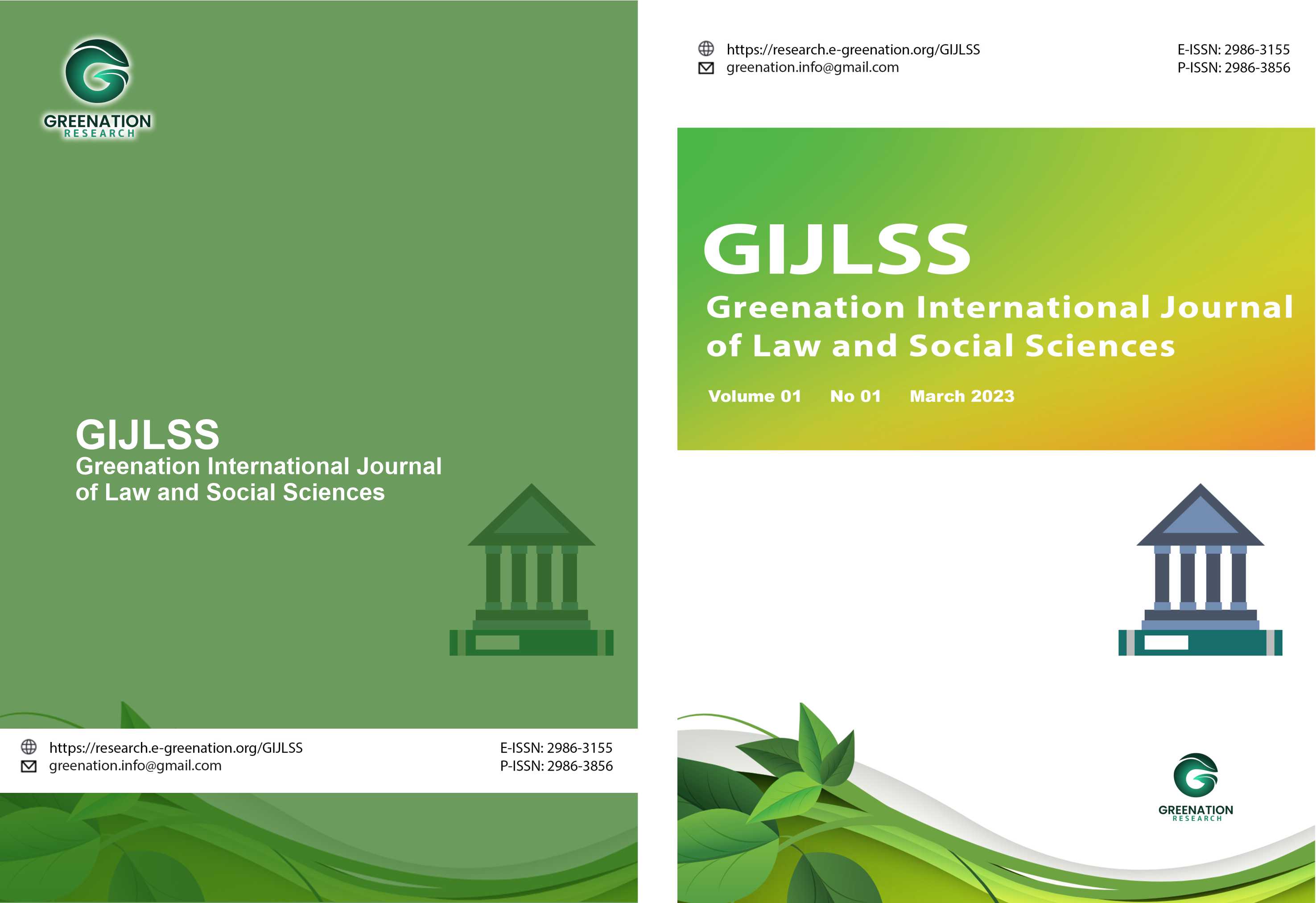Reconstructing the Governance of Hajj and Umrah Administration in Indonesia
DOI:
https://doi.org/10.38035/gijlss.v3i3.567Keywords:
administrative law, pilgrim protection, Hajj, Umrah, and governanceAbstract
Context; In Indonesia, the management of the Hajj and Umrah symbolizes both the state's obligation to provide sufficient protection and the inhabitants' constitutional right to exercise their religion freely. The governance of the Hajj and Umrah, as a strategic form of public service, is nevertheless beset by issues including illegal brokerage, inadequate service infrastructure, quota uncertainty, and lax bureaucratic control. There are still gaps between legal frameworks and actual implementation, even after Law No. 8 of 2019 on the Administration of Hajj and Umrah was passed. GoalBy putting forth a framework that improves legal clarity, accountability, transparency, and equity in service delivery, this study seeks to rebuild Indonesia's Hajj and Umrah governance.
Techniques; Data were gathered through in-depth interviews with stakeholders, such as the Ministry of Religious Affairs, travel agencies that offer the Hajj and Umrah, and pilgrims, using an empirical juridical method. The investigation concentrated on locating bureaucratic procedures, regulatory loopholes, and reform prospects via digital innovation and democratic supervision.
Finding, The results point to three main problems with the governance of the Hajj and Umrah: a lack of coordination between rules and administrative procedures, a low level of pilgrim participation in policymaking, and a poor use of digital technologies to guarantee efficiency and transparency.
Conclusions In order to rebuild the governance of the Hajj and Umrah, it is necessary to embrace participatory supervisory models that go above and beyond the bare minimum, reinforce laws based on substantive justice, and put in place an integrated digital system for handling pilgrim data. Theoretically, this work advances the discussion of administrative law; practically, it makes policy proposals to enhance government. In the end, the study backs the implementation of more effective, fair, and transparent Hajj and Umrah services in Indonesia.
References
Akhmad, S. W. (2025, April 17). Jumlah Jemaah Umrah Indonesia Tembus 648 Ribu pada 2025. From GoodStats: https://goodstats.id/article/jumlah-jemaah-umrah-indonesia-tembus-648-ribu-per-april-2025-terus-meningkat-sejak-2022-myGHb
Amri, Z. e. (2025). Profesionalisme Dalam Pelayanan Ibadah Suci: Praktik, Tantangan, dan Inovasi Biro Haji & Umrah. Banyumas: Lutfi Gilang.
Ananda, D. e. (2024). Analisis tentang permasalahan kekinian yang timbul dalam penyelenggaraan ibadah haji. ALFIHRIS: Jurnal Inspirasi Pendidikan, 2(3), 52-60.
Ayatullah, I. a. (2025). Pengawasan Pemerintah terhadap Travel Haji dan Umroh Dalam Perspektif HR Ibnu Majah no. 2892, dan Pasal 1 UUNo 8 Tahun 2019. Jurnal Ilmu Sosial dan Humaniora, 1(2), 484-498.
Fadli, A. a. (2022). Sinkronisasi Pasal 41 Undang-Undang Nomor 8 Tahun 2019 Tentang Penyelenggaraan Ibadah Haji Menurut Siyasah Dusturiyah Dalam Perlindungan Warga Negara Indonesia. JISRAH: Jurnal Integrasi Ilmu Syariah, 3(3), 431-443.
Firdausiyah, S. R. (2024). Optimalisasi Pelayanan Administrasi Dalam Meningkatkan Kepuasan Calon Jemaah Haji (Studi Penyelenggara Haji Dan Umrah Kementerian Agama Kabupaten Probolinggo). Innovative: Journal Of Social Science Research, 4(3), 13556-13573.
Hidayat, A. (2024). Kritik Hukum Islam Atas Undang-Undang Nomor 8 Tahun 2019 Tentang Penyelenggaraan Ibadah Haji Dan Umrah Dan Prospek Pengembangannya Dalam Sistem Hukum Di Indonesia. Bandung: UIN Sunan Gunung Djati Bandung.
Indra, N. Z. (2025). Pengaruh Ibadah Haji dan Umrah Terhadap Spiritual, Sosial, dan Ekonomi Umat Muslim. Student Scientific Creativity Journal, 3(1), 23-38.
Izzati, N. R. (2024). Analisis Politik Hukum dalam Undang-Undang Penyelenggaraan Haji di Indonesia. Jurnal Interpretasi Hukum, 5(2), 1024-1033.
Kurniawan, E. (2021). Akuntabilitas Pengelolaan Dana Haji Republik Indonesia. Jurnal Ilmiah Ekonomi Islam, 7(3), 1449-1456.
Muslim, M. I. (2020). Historiografi Manajemen Haji Di Indonesia: Dinamika Dari Masa Kolonial Hingga Kemerdekaan. Jurnal Manajemen Dakwah, 6(1), 51-66.
Primadhany, E. F. (2017). Tinjauan terhadap tanggung jawab Badan Pengelola Keuangan Haji (BPKH) dalam melakukan penempatan dan/atau investasi keuangan haji. Jurisdictie: Jurnal Hukum dan Syariah, 8(2), 125-141.
Rosyid, M. (2017). Dinamika haji Indonesia sejak era kolonial dan problematika calon haji ilegal. Ijtihad: Jurnal Wacana Hukum Islam Dan Kemanusiaan, 17(2), 241-259.
Salsabila, R. e. (2024). Meningkatkan Transparansi dan Efisiensi dalam Manajemen Haji dan Umrah: Tantangan dan Inovasi untuk Pelayanan Prima Jamaah. Rayah Al-Islam, 8(3), 978-995.
Sanusi, M. H. (2021). Studi Kritis Penyelenggaraan Ibadah Haji Bagi Masyarakat Muslim Indonesia Dalam Perspektif Maq??id Asy-Syar?’ah. Yogyakarta: Universitas Islam Indonesia.
Sulastri, a. N. (2024). Perlindungan Hukum Calon Jemaah Haji Dan Umrah Pada Masa Pandemi Covid-19 Berdasarkan Undang-Undang Nomor 08 Tahun 2019 Tentang Penyelenggaraan Ibadah Haji Dan Umrah. Jurnal Risalah Kenotariatan, 5(2), 112-113.
Ulum, M. J. (2023). Pertanggungjawaban Pelaku Penggelapan Dana Ibadah Haji Dan Umrah Dalam Sistem Peradilan Pidana Di Indonesia. Perfecto: Jurnal Ilmu Hukum, 1(2), 93-100.
Vitiara, M. B. (2025, Maret 6). Kuota Haji Reguler Terisi 70%, Pelunasan Sampai 14 Maret 2025. From Direktorat Jenderal Penyelenggaraan Haji dan Umrah: https://haji.kemenag.go.id/v5/detail/kuota-haji-reguler-terisi-70-pelunasan-sampai-14-maret-2025
Wulandari, N. D. (2024). Dinamika Haji Indonesia: Masa Prakolonial Sampai Masa Kolonial. Keraton: Journal of History Education and Culture, 6(1), 1-6.
Yanis, M. (2024). Ibadah Haji Dalam Perspektif Fiqih Dan Filosofis Serta Penerapannya Dalam Sosial Masyarakat. Jurnal Cerdas Hukum, 2(2), 60-66.
Downloads
Published
How to Cite
Issue
Section
License
Copyright (c) 2025 Muhammad Farid Aljawi, Faisal Santiago

This work is licensed under a Creative Commons Attribution 4.0 International License.
Copyright :
Authors who publish their manuscripts in this journal agree to the following conditions:
- Copyright in each article belongs to the author.
- The author acknowledges that the Greenation International Journal of Law and Social Sciences (GIJLSS) has the right to be the first to publish under a Creative Commons Attribution 4.0 International license (Attribution 4.0 International CC BY 4.0).
- Authors can submit articles separately, arrange the non-exclusive distribution of manuscripts that have been published in this journal to other versions (for example, sent to the author's institutional repository, publication in a book, etc.), by acknowledging that the manuscript has been published for the first time at GIJLSS.























